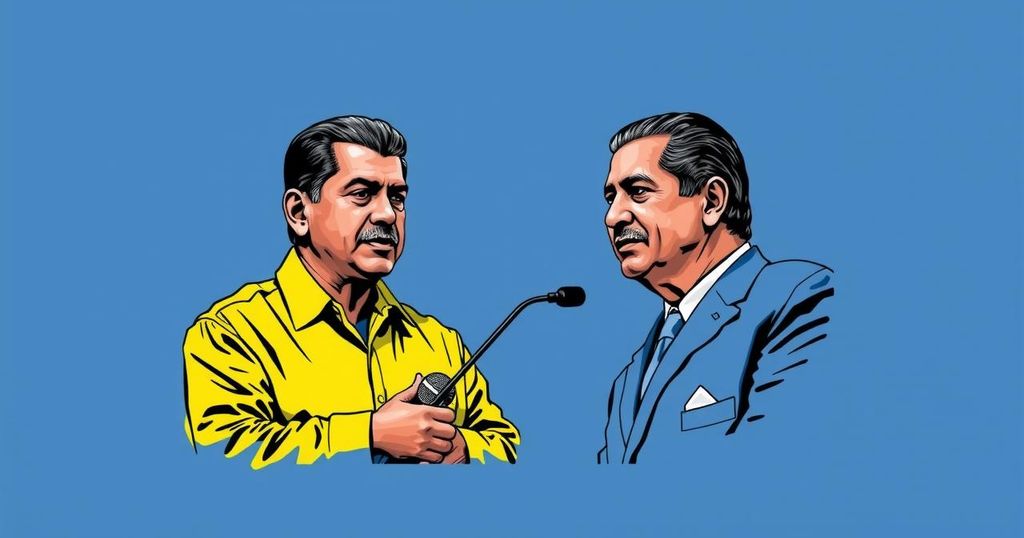U.S. Sanctions on Maduro-Aligned Officials Aim to Pressure for Democratic Transition

The United States has announced sanctions against over 20 officials linked to President Nicolás Maduro to pressure him into accepting the results of Venezuela’s disputed July election. The new sanctions target military personnel and other influential figures within the Venezuelan government, coinciding with the U.S. recognizing opposition leader Edmundo Gonzalez as the president-elect. The Biden administration aims to encourage a democratic transition by holding the Maduro regime accountable.
On Wednesday, the United States imposed individual sanctions on over 20 officials affiliated with Venezuelan President Nicolás Maduro, aiming to compel him to acknowledge the results of the contentious July presidential election. This decision was disclosed during a briefing with senior administration officials, emphasizing the administration’s objective to persuade key figures within the Venezuelan regime to assist in establishing a democratic transition.
These sanctions specifically target military personnel from key security sectors, including the Bolivarian National Guard and the Bolivarian National Police. Notable individuals sanctioned include Aníbal Coronado, Maduro’s recently appointed chief of staff, Communication Minister Freddy Ñañez, and intelligence service director Alexis Rodríguez. The sanctions come four months post-election, and officials assert that they intend to encourage divisions within Maduro’s government.
Despite existing oil sanctions and exemptions allowing specific companies like Chevron to operate in Venezuela, these measures remain subject to continual reassessment. The timing of these sanctions coincides with the U.S. formally recognizing opposition leader Edmundo Gonzalez as the legitimate president-elect after the disputed election on July 28. Secretary of State Antony Blinken emphasized the message of democratic integrity through social media, underscoring, “The Venezuelan people spoke resoundingly on July 28 and made Edmundo Gonzalez the president-elect. Democracy demands respect for the will of the voters.”
Acknowledging the upcoming administration change on January 20, one official highlighted that the current actions are part of advancing democracy in Venezuela and holding its regime accountable for extensive repression. Both the Maduro administration and many of its cabinet members have faced U.S. sanctions since the onset of the Venezuelan crisis in 2017. This framework has also led to a $15 million bounty offered by U.S. prosecutors for information on Maduro’s capture due to drug trafficking and terrorism charges.
The United States has actively engaged in diplomatic measures to influence Venezuela’s political landscape, particularly concerning its commitment to democracy amid a prolonged crisis characterized by authoritarianism under President Nicolás Maduro. Sanctions against Venezuelan officials have become a primary tool for the U.S. government to incite change from within, particularly after the disputed results of the July elections which the Biden administration now actively seeks to delegitimize. The acknowledgment of opposition leaders as legitimate representatives signifies a shift in diplomatic recognition typically leveraged to weaken authoritarian regimes.
In summary, the U.S. government’s recent sanctions against Maduro-aligned individuals are part of a broader strategy to support democratic governance in Venezuela. By targeting key figures within the Venezuelan military and administration, Washington aims to pressure these officials to facilitate a transition away from Maduro’s authoritarian rule. As the U.S. recognizes Edmundo Gonzalez as the president-elect, efforts to maintain and escalate sanctions will likely continue, reflecting a commitment to uphold the democratic will of the Venezuelan populace.
Original Source: www.cnn.com







